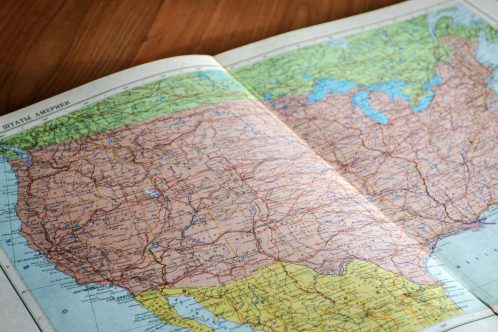States Poised to Join the Sports Betting Boom in 2024

The sports betting landscape in the United States has undergone a dramatic transformation since the Supreme Court’s landmark decision in May 2018 to overturn the Professional and Amateur Sports Protection Act (PASPA). This ruling opened the floodgates for states to legalize sports betting, leading to a boom in the industry. As we go through 2024, several states are on the cusp of joining this lucrative market, driven by the potential for substantial economic benefits and a growing cultural acceptance of sports betting. This article explores the states poised to join the sports betting boom in 2024, examining the legislative momentum, potential economic impact, and the broader implications for the sports industry.
The Legislative Landscape
As of early 2024, over half of the U.S. states have legalized sports betting in some form, with several others actively considering legislation. The journey toward legalization is complex, often requiring amendments to state constitutions, intricate licensing frameworks, and robust regulatory mechanisms to ensure integrity and responsible gambling. Some states almost immediately jumped on the decision to legalize sports betting in 2019, paving the way for casinos like those listed on oronlinecasinos. States like California, Texas, and Florida, with large populations and significant sports fan bases, are seen as the next dominoes to fall in the sports betting legalization race.
California: The Golden Opportunity
California, with its vast population and sports culture, represents a golden opportunity for the sports betting industry. The state has seen multiple legislative attempts and public initiatives aiming to legalize sports betting, facing challenges from diverse stakeholders, including tribal casinos, commercial operators, and anti-gambling groups. However, momentum is building, with potential for a breakthrough in 2024 as lawmakers and constituents recognize the economic windfall sports betting could bring.
Texas: A New Frontier
Texas, known for its robust sports culture and as the home to numerous professional sports teams, is another state on the verge of embracing sports betting. Legislative efforts have been gaining traction, with bipartisan support highlighting the potential for sports betting to fund public education and other state programs. The Lone Star State’s vast market could significantly impact the national sports betting landscape once legalized.
Florida: Overcoming Hurdles
Florida’s sports betting journey has been a rollercoaster, with legal battles and regulatory hurdles complicating the path to legalization. However, the state’s large and sports-centric population makes it a prime candidate for sports betting. Efforts to negotiate with tribal nations, who currently hold significant sway over gambling operations, and to navigate legal challenges, suggest that Florida could join the sports betting boom with the right legislative framework.
Economic Impact and Potential
The legalization of sports betting carries significant economic implications. States stand to gain from licensing fees, taxes on betting revenue, and the job creation associated with new sportsbooks and online betting platforms. The experience of early adopters has been overwhelmingly positive, with states like New Jersey and Pennsylvania reporting substantial revenue that has bolstered state coffers and funded various public services.
Job Creation and Business Opportunities
Beyond direct fiscal benefits, sports betting legalization spurs job creation across various sectors, including technology, hospitality, and retail. It also opens business opportunities for local and national companies, from sportsbook operators to tech startups developing betting software and apps. The economic ripple effect can revitalize communities and contribute to broader economic growth.
Enhancing Sports Engagement
Sports betting legalization also has the potential to enhance fan engagement, drawing more viewers to games and increasing participation in sports events. This heightened interest can drive revenue for leagues and teams through merchandise sales, broadcasting rights, and sponsorships, creating a symbiotic relationship between the sports industry and betting operators.
Navigating Challenges
The path to sports betting legalization is fraught with challenges, from regulatory hurdles to ethical concerns. States must navigate complex negotiations with tribal nations, address concerns from anti-gambling advocates, and establish regulatory frameworks that ensure fair play and responsible gambling. The experiences of states that have already legalized sports betting offer valuable lessons in balancing economic benefits with social responsibility.
Regulatory and Ethical Considerations
Ensuring the integrity of sports is paramount, necessitating robust regulatory frameworks to prevent match-fixing and other forms of corruption. States must also implement measures to promote responsible gambling, including self-exclusion programs and resources for individuals struggling with gambling addiction. The goal is to create a safe and equitable sports betting environment that benefits all stakeholders.
The Road Ahead
As 2024 goes on, the states on the verge of legalizing sports betting stand at a pivotal juncture. The potential economic benefits are significant, offering a new source of revenue and job creation opportunities. However, the path to legalization requires careful navigation of legislative, regulatory, and ethical challenges.
The broader implications for the sports industry are also profound, with the potential to transform fan engagement and open new revenue streams. As more states join the sports betting boom, the landscape of American sports and gambling will continue to evolve, promising a future where betting is an integral part of the sports experience. The states poised to join this movement in 2024 are not just contributing to a growing industry; they are reshaping the cultural and economic fabric of sports in America.
















